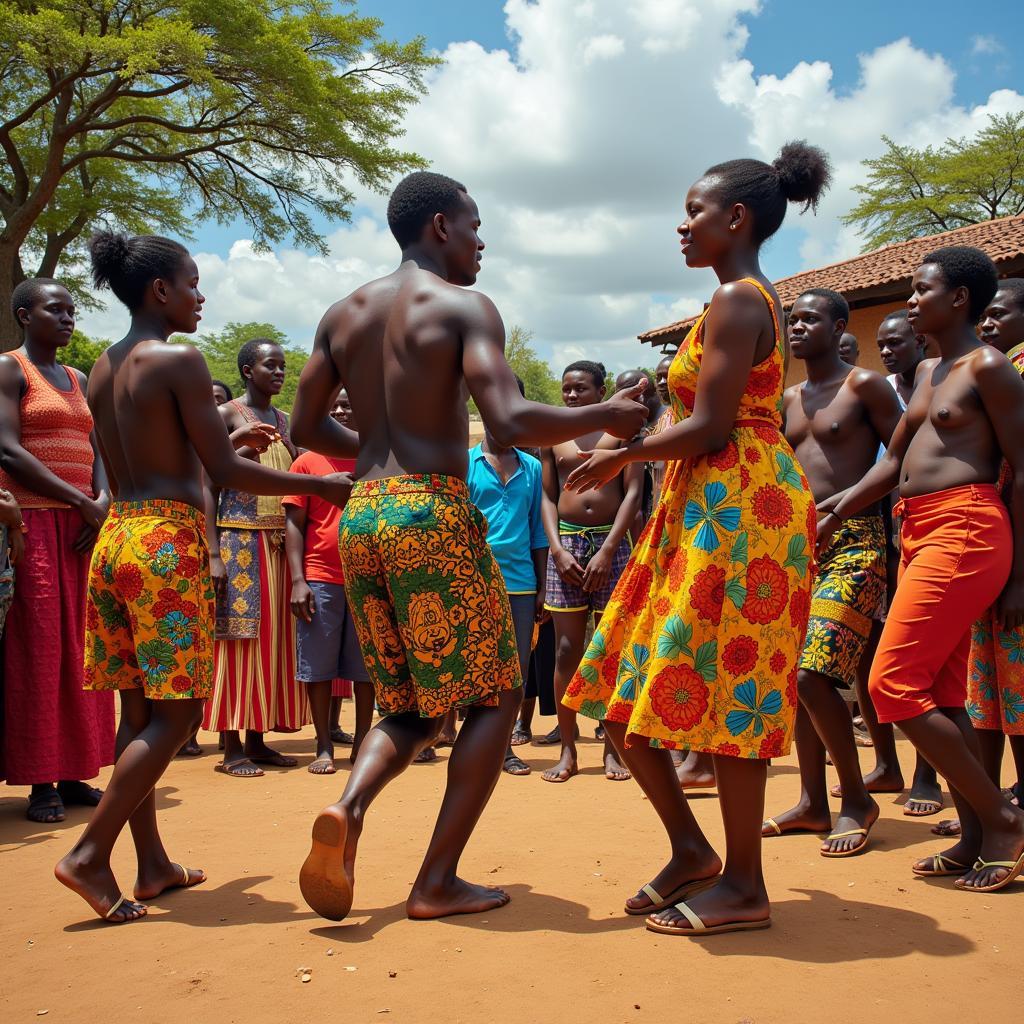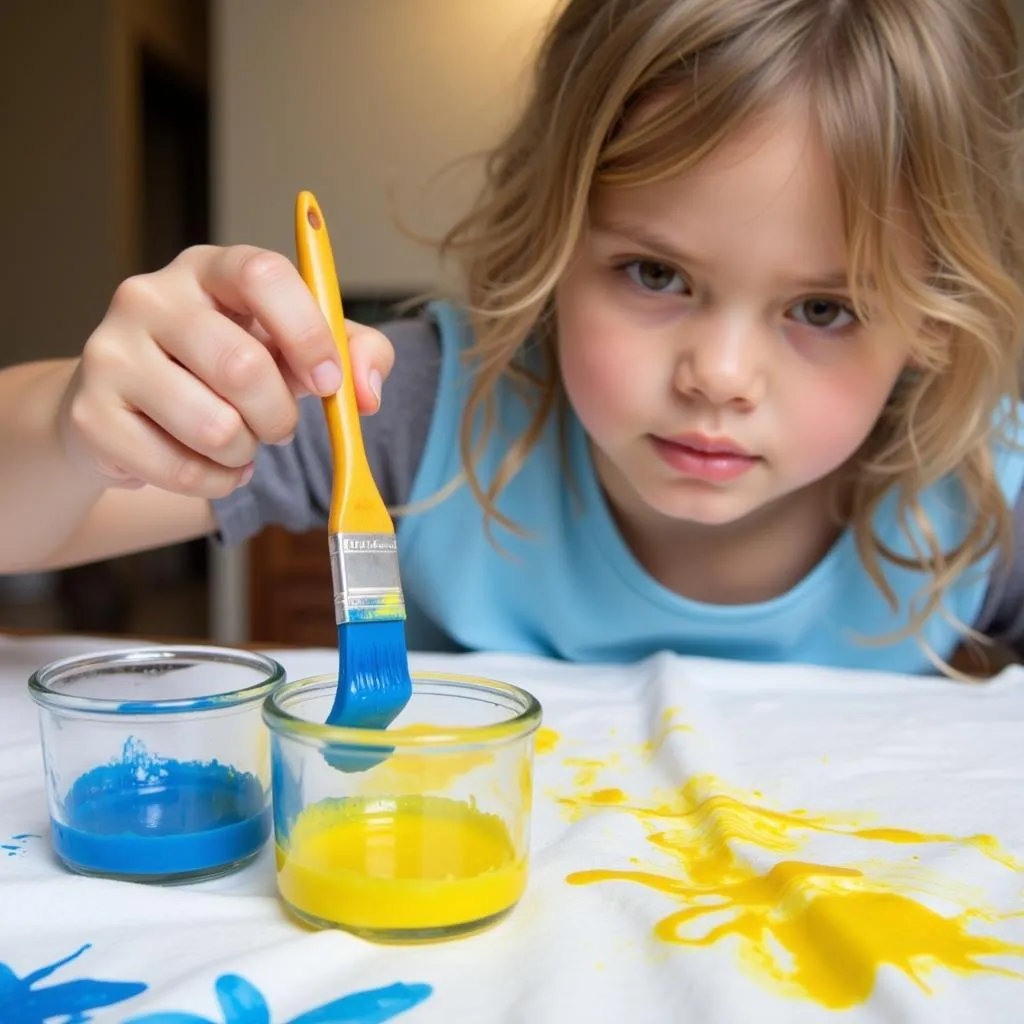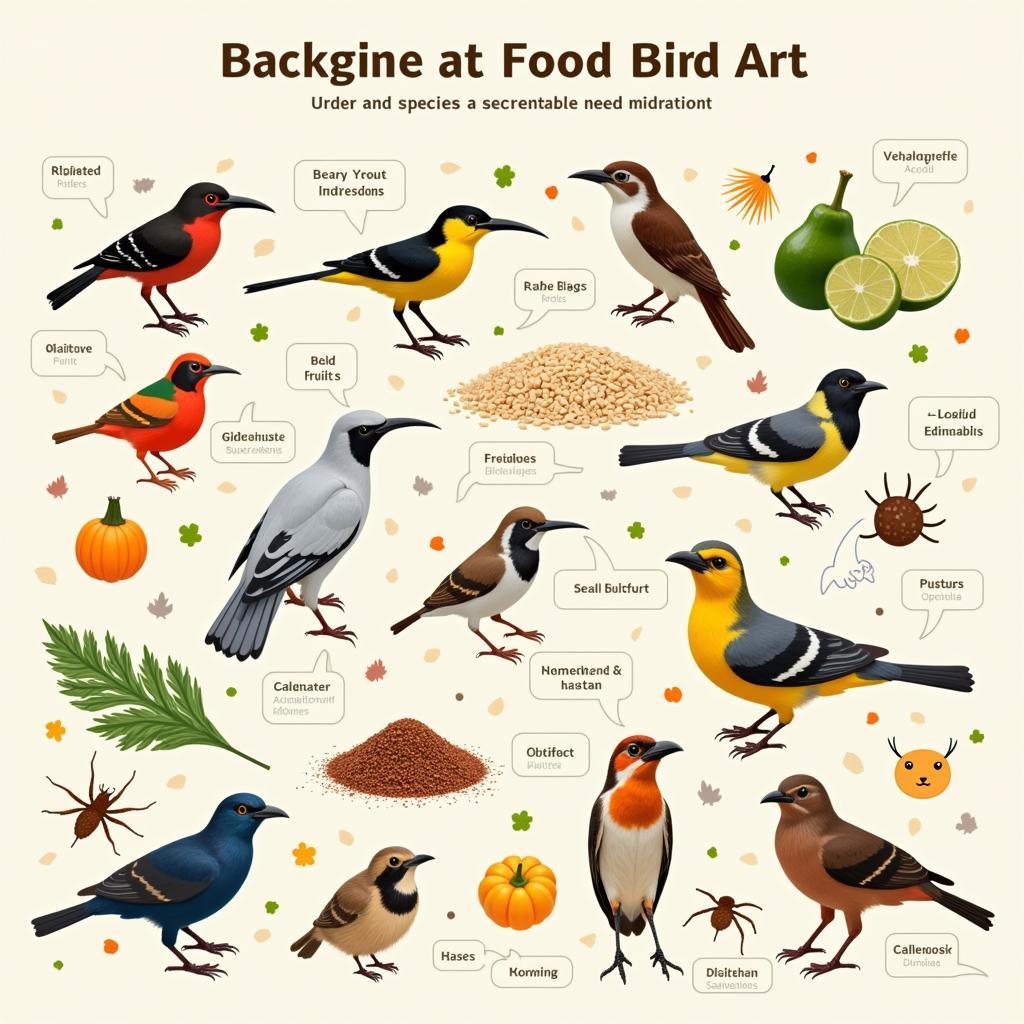Exploring African Culture Before Marriage
African Culture Before Marriage is a rich tapestry of traditions, rituals, and customs that vary significantly across the continent’s diverse ethnic groups. These practices, passed down through generations, offer a glimpse into the values, beliefs, and social structures that shape the lives of individuals before they enter into matrimony. From elaborate courtship rituals to symbolic gift exchanges, the period before marriage is often a time of significant personal and social transformation.
 African Courtship Rituals Before Marriage
African Courtship Rituals Before Marriage
In many African societies, marriage is not simply a union between two individuals but a joining of families and communities. Therefore, the pre-marital period is crucial in establishing strong bonds and ensuring the compatibility of the couple within the larger social context. Courtship can involve a series of elaborate rituals, including gift-giving, singing, dancing, and storytelling. These practices serve as a way for the couple to get to know each other, demonstrate their commitment, and gain the approval of their families. For example, in some cultures, the groom-to-be is expected to present gifts to the bride’s family as a sign of respect and to demonstrate his ability to provide for his future wife. These gifts can range from livestock and agricultural products to symbolic items like beads or cloth. In other cultures, the bride and groom may participate in specific dances or performances that showcase their skills and suitability for marriage.
Courtship and Family Involvement in African Culture Before Marriage
Courtship traditions often involve extensive family participation. The families of the prospective bride and groom play a central role in the pre-marital process, often negotiating the terms of the marriage and ensuring that the union is beneficial to both families. This involvement emphasizes the importance of community and kinship in African societies. Family elders often serve as advisors and mediators, guiding the couple through the complexities of courtship and marriage. They may also provide instruction on the responsibilities and expectations of married life, ensuring the continuity of cultural values and traditions. You can learn more about African traditions surrounding family and marriage on sites like african ancestors offerings.
The Role of Elders in Pre-Marital Preparations
Elders hold a position of authority and wisdom within African communities, and their guidance is highly valued in the pre-marital period. They provide advice on everything from choosing a suitable partner to navigating the complexities of family relationships. In many cultures, elders are also responsible for educating the couple about the spiritual and cultural significance of marriage, emphasizing the importance of respect, commitment, and responsibility. Their involvement ensures that the young couple enters marriage with a strong foundation of cultural knowledge and social support.
Bridal Preparation and Rites of Passage
The pre-marital period also involves various rites of passage, particularly for the bride. These rituals mark the transition from girlhood to womanhood and prepare the bride for her new role as a wife and mother. These ceremonies may involve seclusion, instruction in domestic skills, and symbolic rituals that signify the bride’s readiness for marriage. For more insights into related customs and traditions, you might find information on african defloration informative, though it’s important to approach such topics with cultural sensitivity.
Significance of Dowry in African Marriages
In some African cultures, the practice of dowry is an important aspect of the pre-marital period. The dowry, typically consisting of gifts or payments from the groom’s family to the bride’s family, serves as a symbol of the groom’s commitment and appreciation for his future wife. While the practice of dowry has been debated and criticized in modern times, it traditionally holds cultural significance as a way to establish a bond between the two families and ensure the bride’s well-being in her new home.
Expert Insight:
Aisha Kenyatta, a Kenyan cultural anthropologist, observes: “The pre-marital period in African cultures is a vital time for both personal and social development. It’s a period of learning, growth, and transition, preparing individuals for the responsibilities and joys of married life.”
Dr. Kwame Nkrumah, a Ghanaian historian, adds, “Understanding the cultural nuances of pre-marital practices in Africa is key to appreciating the deep-rooted values and traditions that shape family structures and community bonds.”
Conclusion
African culture before marriage is a complex and fascinating subject, reflecting the diversity and richness of the continent’s traditions. From courtship rituals and family involvement to bridal preparations and the significance of dowry, these practices offer valuable insights into the social fabric of African societies. Understanding these traditions is essential for appreciating the cultural context of marriage in Africa and the important role it plays in individual and community life. Exploring this rich heritage helps us understand the deep-rooted values that continue to shape African societies today. For more insights on African culture, you might be interested in articles about african country sex or african brides for marriage in india.
FAQ
- What is the typical duration of the pre-marital period in African cultures?
- How do courtship rituals vary across different African ethnic groups?
- What is the role of music and dance in African pre-marital traditions?
- How has modernization impacted traditional African pre-marital customs?
- What are some common misconceptions about African culture before marriage?
- What are some resources for learning more about specific African pre-marital traditions?
- How are pre-marital traditions adapted for intercultural marriages involving African partners?
Do you have any other questions about African Culture Before Marriage?
Here are some other topics you might find helpful:
- Traditional African Wedding Ceremonies
- The Role of Women in African Societies
- Family Structures in Different African Cultures
Need further assistance? Contact us 24/7 at Phone: +255768904061, Email: [email protected] or visit our office at Mbarali DC Mawindi, Kangaga, Tanzania.


